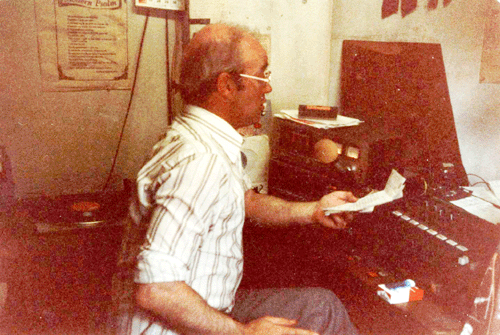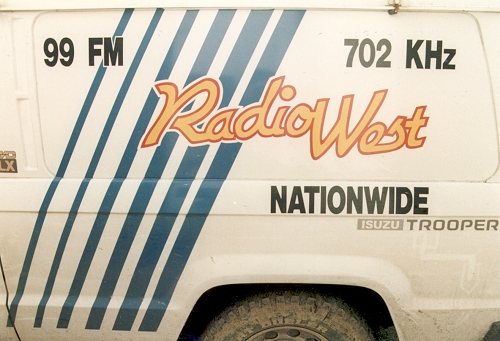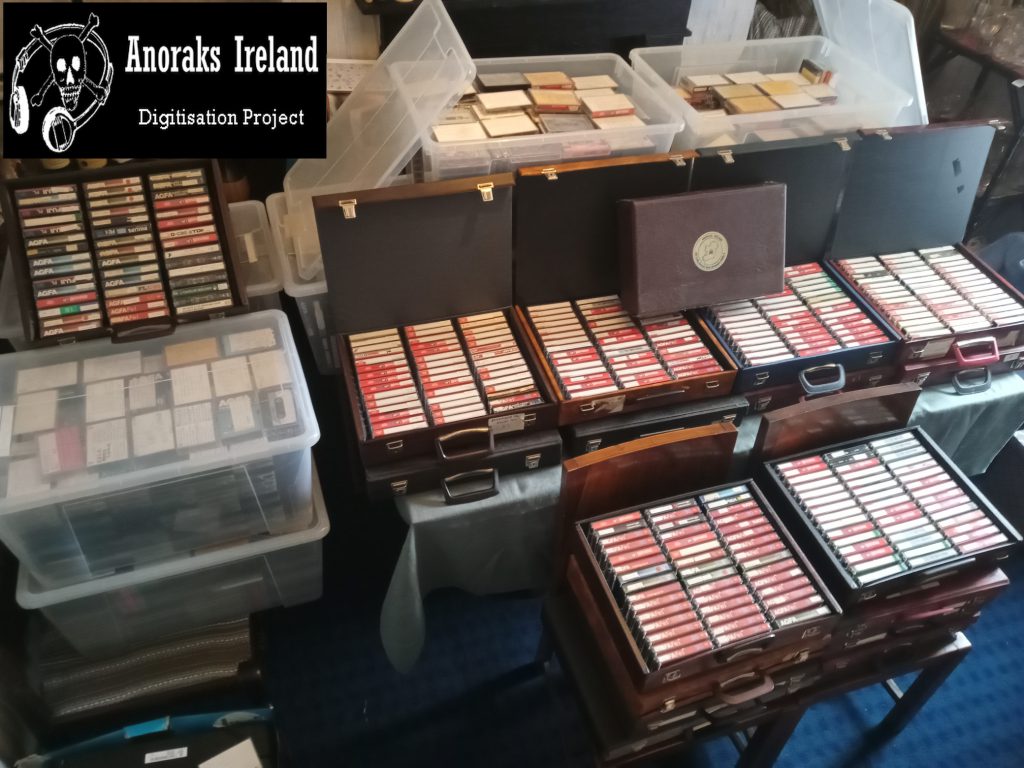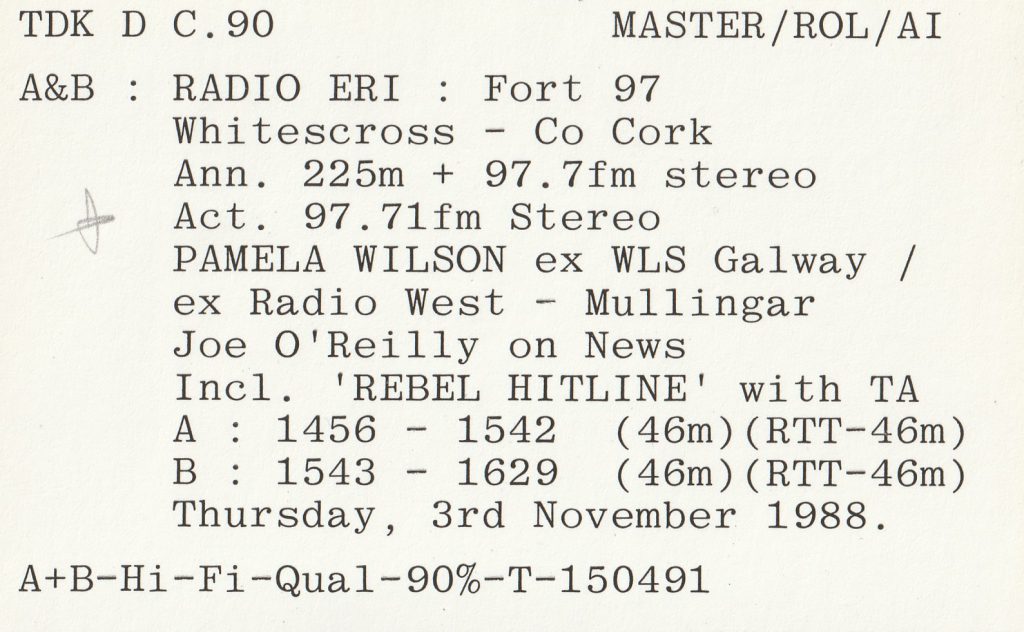Podcast: Play in new window | Download
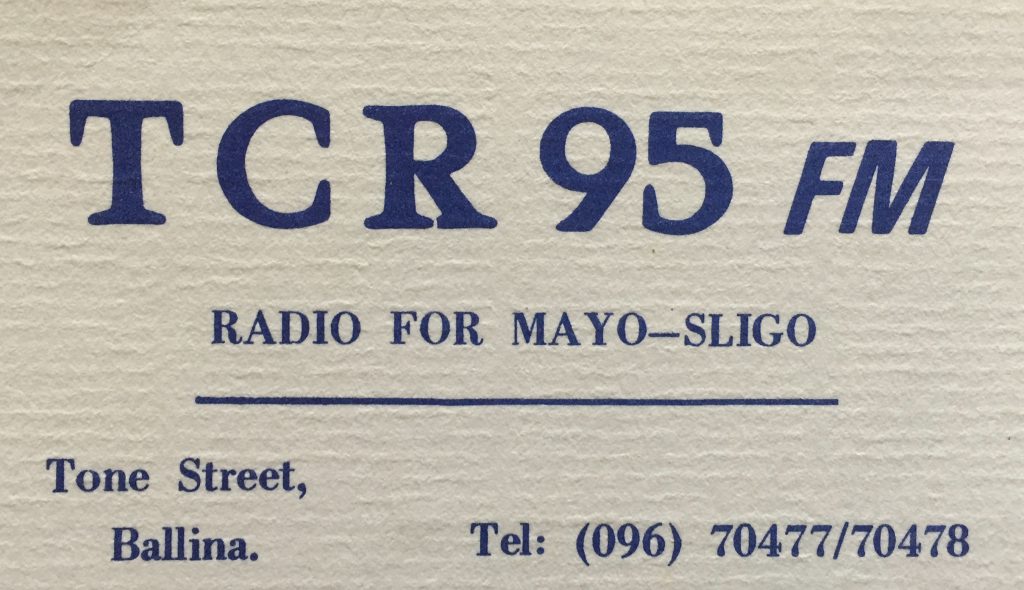
The town of Ballina in north Mayo got its first pirate radio station late in 1980 when Alternative Radio West (ARW) came on the air. A leading light in ARW – and later Ballina pirates such as Castle Radio and Westward Radio – was the late Tommy Murphy from Enniscrone in Co. Sligo. According to Magic and Madness, a history of Midwest Radio by James Laffey, Tommy famously checked with the Gardaí before switching on his transmitter so that he wouldn’t use the same frequencies! In fact, it is said that no-one ever considered raiding Tommy’s stations because he was so popular in Ballina.
Tommy’s final pirate outing was Twin County Radio, which came on the air in the spring of 1988 and served a large area of North Mayo and neighbouring Sligo, hence the name. TCR broadcast on 95 FM, was backed by local businessmen and had a full-time staff of six. It closed on New Year’s Eve 1988, along with all but the more daring pirate stations.
This is the final hour-and-a-half of TCR, recorded from 1640-1810 on 31st December 1988. DJs Paul Stevens, Brenda Murphy, Siobhán Caffrey, Jimmy Whittington and John McIntyre say their goodbyes and Tommy Murphy hosts the final hour. There are several references to how the pirates launched the careers of many Irish country music stars in the 1980s. Twin County Radio closes down with the Angelus, a recorded message from Tommy Murphy and the national anthem. Tommy was also heard on Independent Radio Mayo and on the pirate and licensed Midwest Radio and died in 2012.
We thank John Breslin for his donation of this recording. For a comprehensive account of the 1988 closedowns, see the Radiowaves site.


